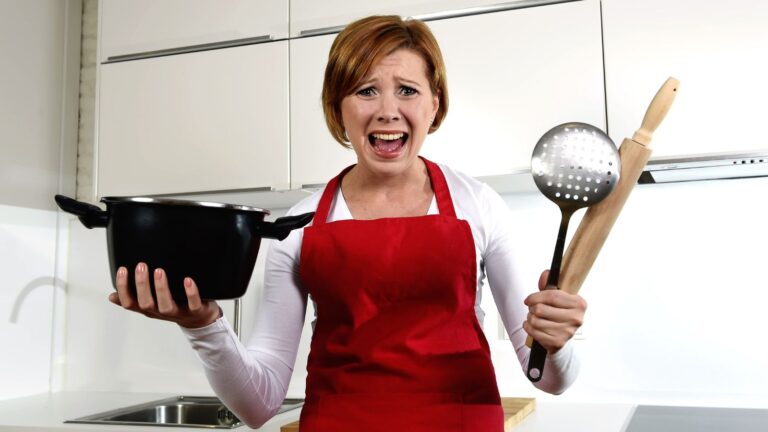There’s an art to mastering the cooking of delicious meals, and even the most experienced chefs can make mistakes, as there are many variables involved. However, as long as you avoid these common cooking mistakes, you’ll be making progress in cooking delicious and satisfying meals with consistency.
Improper Measuring

Some new chefs become careless when measuring ingredients, attempting to ‘eyeball’ the quantities. This is a big mistake; incorrect measurements can throw off the balance of a recipe. Too much or too little of an ingredient will dramatically alter the taste and texture, so even experienced chefs use scales.
Skipping Seasoning

One rule to always follow when cooking is that seasoning mustn’t be skipped. Forgetting to season or only seasoning at the end can result in bland dishes, so season your meal throughout the cooking process to build layers of flavor. Don’t forget to taste as you go and adjust accordingly.
Not Preheating the Oven

Some people think preheating is an unnecessary waste of time, but that’s not true. Putting food into a cold oven affects cooking times, resulting in unevenly cooked meals. Always preheat the oven to the correct temperature before placing your dish inside; otherwise, you risk ruining your meal.
Overcrowding the Pan
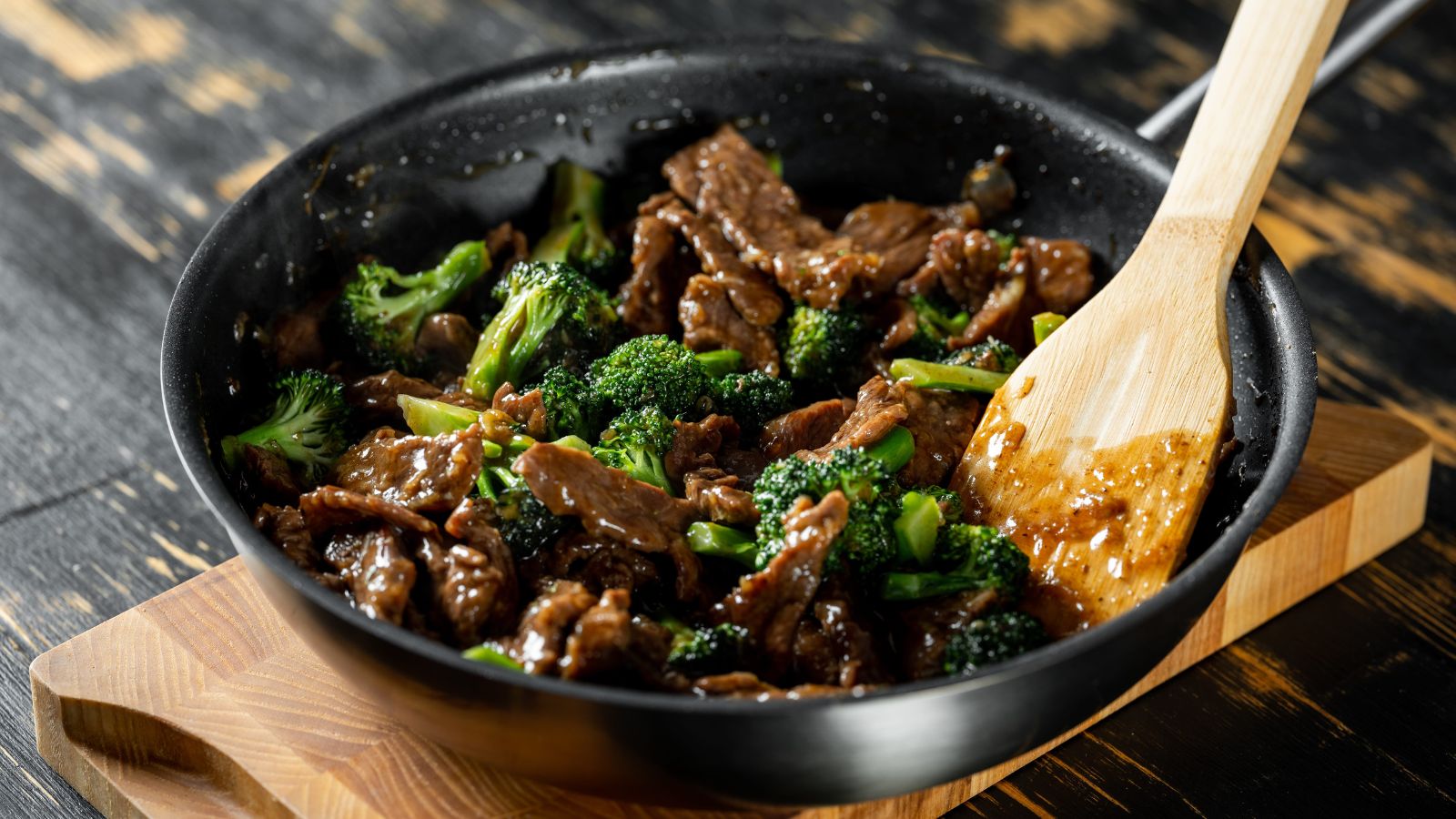
One common cooking mistake that can ruin a meal is placing too much food in the pan, which, according to Cooking Clarified, reduces temperatures. This leads to uneven cooking, and the food ends up steaming rather than searing, which can result in a soggy texture.
Using Dull Knives
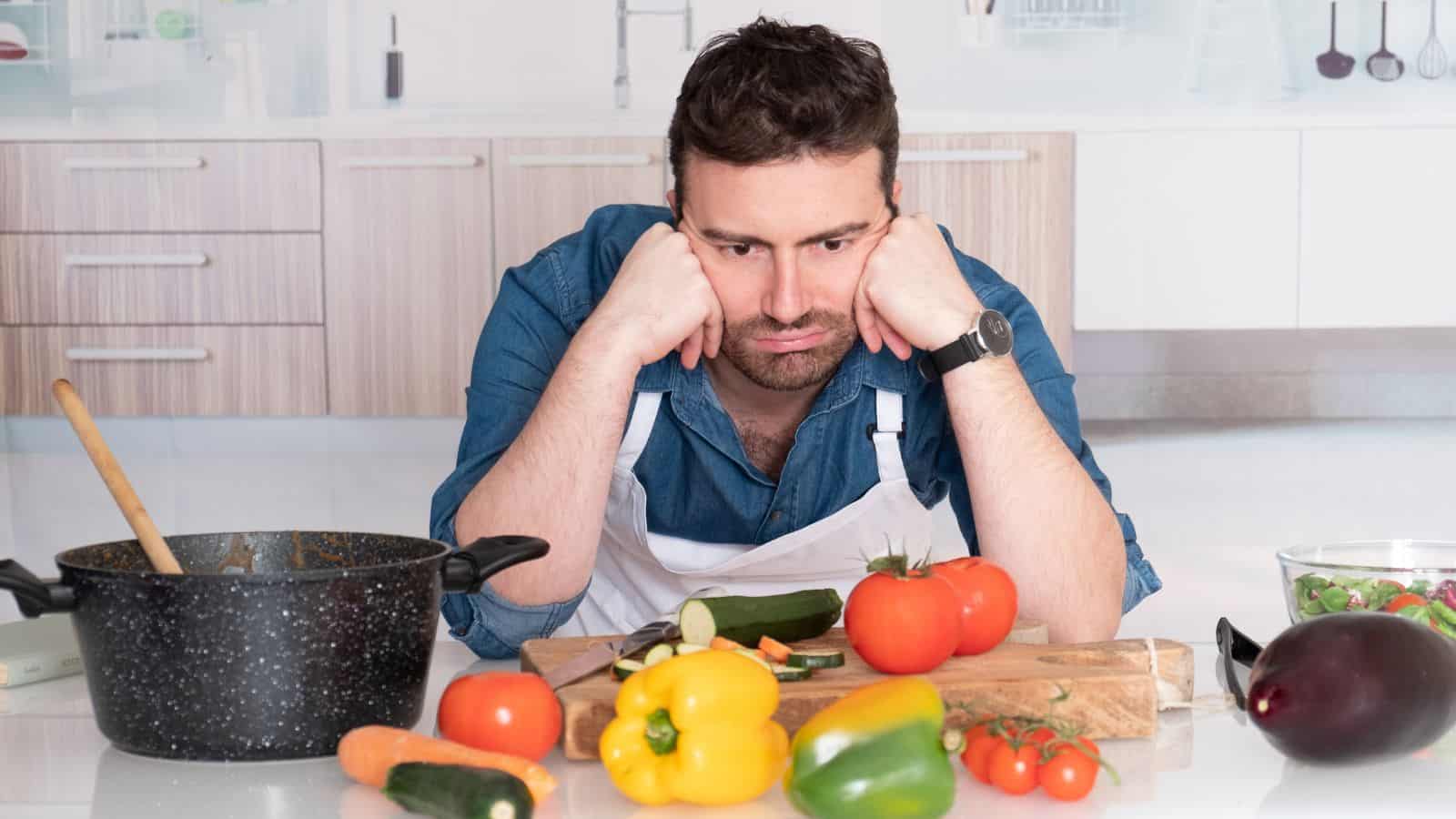
Not only is using a dull knife dangerous, but it’s also inefficient. It requires far more force and can crush delicate ingredients, which can instantly ruin their texture. Make sure that you sharpen your knives regularly to ensure clean cuts and safer, more efficient meal preparation.
Ignoring the Recipe

Many aspiring chefs become overconfident after getting some experience, ignoring recipes in favor of improvising. However, this can lead to disastrous results, as ingredients and steps are carefully chosen for a reason. Follow recipes closely, especially when trying new dishes, to achieve a tasty result.
Using the Wrong Oil

Different oils have varying smoke points, which affect their performance at high temperatures. Choosing the wrong oil can lead to burnt or off-flavored food, so always choose oils with appropriate smoke points for your cooking method.
Overcooking Vegetables

Vegetables lose their texture and nutrients when they’re overcooked, so don’t boil them to mush. Try steaming, sautéing, or roasting them to retain their color, crunch, and nutritional value, and keep a close eye on your cooking times to ensure that you don’t overcook them.
Rushing the Cooking Process

Good food takes time, and rushing the cooking process can lead to detrimental mistakes like undercooking or uneven seasoning. Allow sufficient time for each step, whether it’s marinating, simmering, or baking, to ensure the best possible results. Remember: cooking is never a race.
Using Old Spices

Many people don’t realize that spices lose their potency over time, leaving open containers sitting in their cupboards for months or even years. Don’t make this mistake–it’s always worth checking the expiration dates of spices and replacing them regularly. Otherwise, you’ll end up cooking bland food.
Careless Pasta Cooking
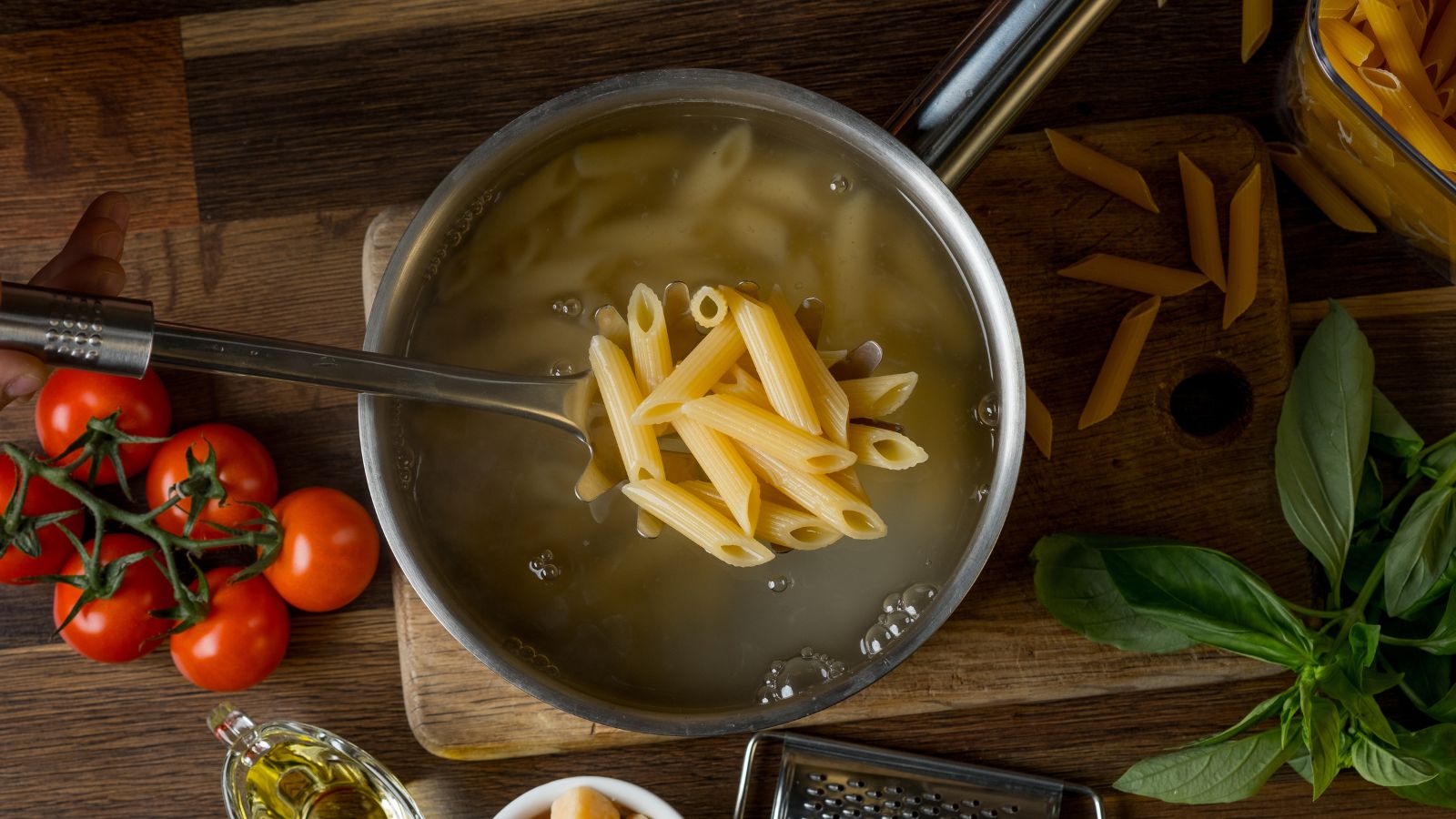
There are many variables that contribute to the perfect pasta, so even if you use too little water, don’t salt the water sufficiently, or cook it for a minute too long, the texture and taste can suffer. Pasta should be tasty and al dente, not a soggy mess.
Not Resting Meat

Cutting into meat immediately after cooking causes the juices to run out, resulting in dry meat. This common cooking mistake can turn a delicious meal into a dry, tasteless experience. Let the meat rest for a few minutes before slicing, and then you’ll be fine.
Forgetting to Taste as You Go

Cooking is a step-by-step process, so it’s important to taste food as you go to find the perfect balance of flavors. Waiting until the end might be too late to fix any issues, so make it a habit to taste and tweak as you go for the best results.
Using the Wrong Pan Size
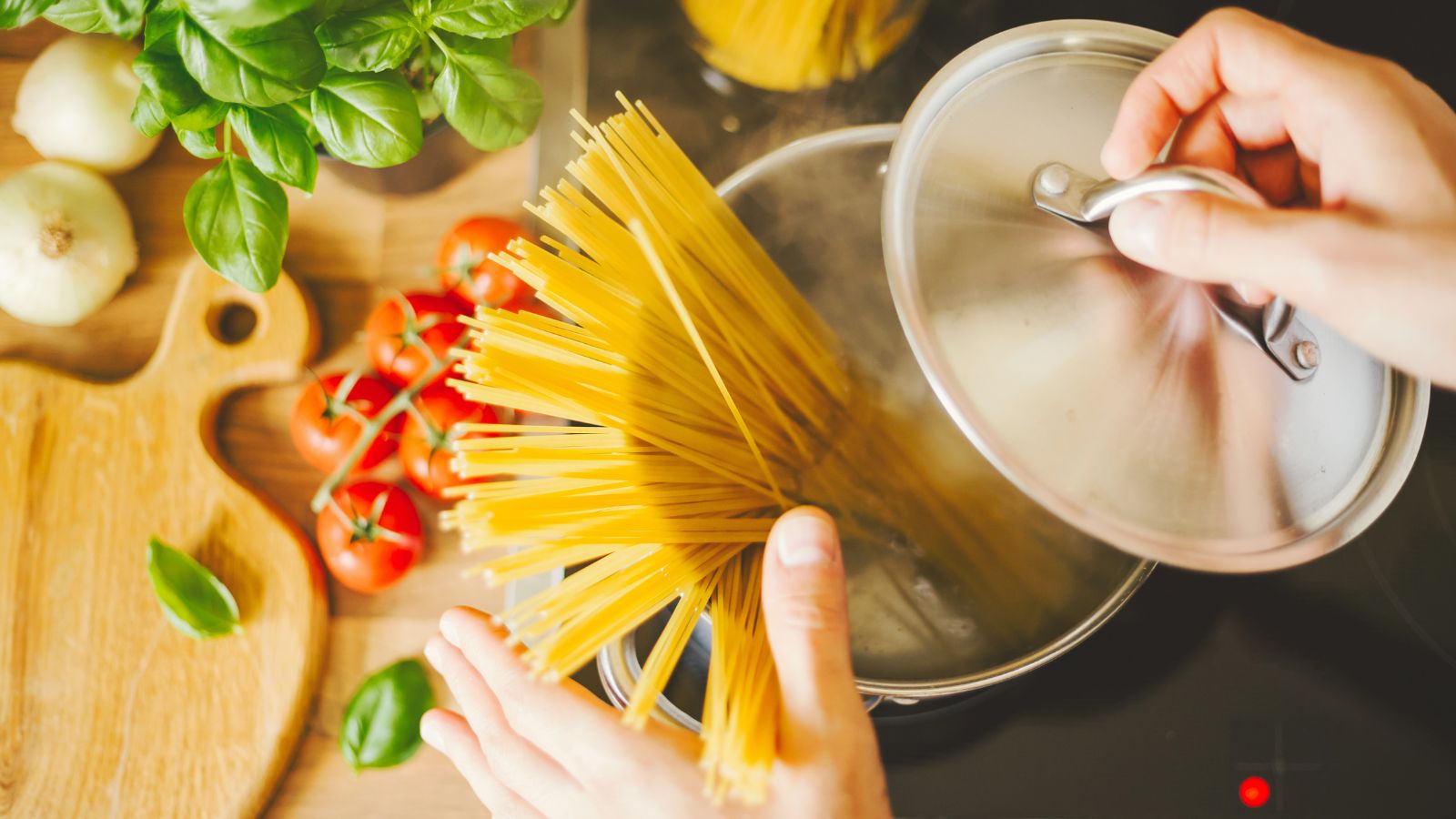
Not all pans are suitable for the same purpose; in fact, using a pan that’s too large or too small for the amount of food can lead to uneven cooking. Instead, match the pan size to the quantity of food you’re preparing to ensure consistent heat distribution and proper cooking.
Mismanaging Heat

This might seem obvious, but cooking at the wrong temperature can ruin your dish. This isn’t just about burning your food; overly low temperatures can result in undercooked meals, too, so pay attention to heat settings and adjust as needed. When in doubt, check the recipe.
Not Using a Thermometer

Even if you’re aware of the importance of temperature in cooking, it’s difficult to perfect without a thermometer. Measuring temperature precisely ensures the meat is cooked to a safe and appropriate temperature, so invest in a good meat thermometer and use it regularly to check doneness accurately.
Over Stirring

It’s easy to think that there’s no such thing as stirring food too often, but that’s a big mistake. Excessive stirring can break down food, especially delicate ingredients like rice or beans, making them mushy. Stir just enough to combine ingredients and distribute heat evenly without overworking the food.
Neglecting to Prep Ingredients

You should never neglect to prepare your cooking ingredients before you start cooking. By prepping, you will streamline the cooking process, which helps you perfect your timings. Chopping, measuring, and organizing ingredients while you cook is a recipe for disaster, as it will be easy to overcook your meal.
Using Cold Ingredients

The temperature of your ingredients when cooking absolutely matters, especially if they are too cold. When prepping, you should remove ingredients from the fridge for at least ten minutes before you start cooking, especially with foods such as butter, eggs, and meats. Otherwise, the texture will be ruined.

